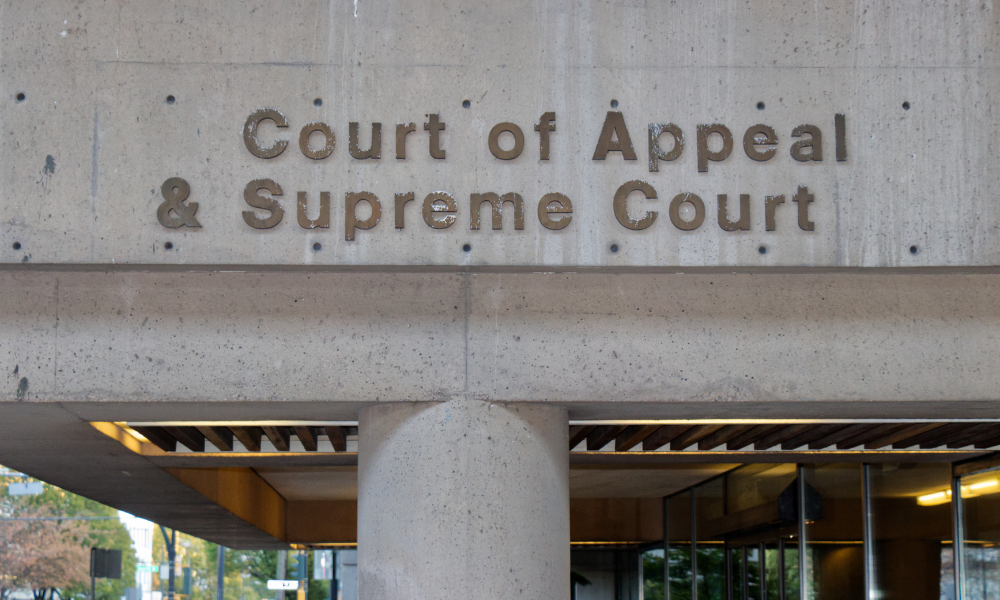
Judge finds grooming and relationship developed during boy's visits to retired teacher's home

The British Columbia Court of Appeal has upheld a trial judgment refusing to hold a school district vicariously liable for a retired teacher’s sexual abuse of a student, upon finding that the judge did not misapply the relevant test.
In H. N. v. School District No. 61 (Greater Victoria), 2025 BCCA 144, a sixth-grade teacher recognized that the appellant’s English classes were not challenging enough and considered referring him to a recently retired teacher, who agreed to volunteer as his tutor after meeting the appellant and his mother. The school authorized this tutorial role.
The appellant and his new tutor met weekly in an empty classroom while English class was going on. The abuse started during the appellant’s occasional visits to his tutor’s home. The evidence showed that the tutor might have begun grooming the appellant in school, but did not abuse him there.
The trial judge dismissed the claims alleging direct negligence against the school district. He ordered the tutor’s estate to pay the appellant over $2.3 million in damages, as the tutor had passed away before trial.
The judge accepted that the school district’s tutoring arrangement gave the tutor an opportunity to start grooming the appellant, who would not have suffered abuse if not for that opportunity. The judge then considered the tutor’s duties, responsibilities, and powers.
Ultimately, the judge ruled that the school district was not vicariously liable since mere opportunity could not be the basis for a vicarious liability finding. The judge saw an insufficient connection between the risk of sexual abuse created by the tutoring arrangement and the abuse suffered.
The judge held that the tutoring arrangement did not significantly increase the risk of abuse and that the tutor’s commencement of his grooming activities in school did not amount to a material enhancement of risk.
The judge determined that the abuser’s role as a tutor supplementing the appellant’s English education did not give him the power to discipline the appellant or the authority of a parent, a person in a quasi-parental role, or a teacher over a student. The judge noted that the role could have ended anytime, as it depended on its continuing usefulness to the appellant.
The judge applied the test for vicarious liability in Bazley v. Curry, 1999 CanLII 692 (SCC), [1999] 2 S.C.R. 534 and Jacobi v. Griffiths, 1999 CanLII 693 (SCC), [1999] 2 S.C.R. 570. He ruled that Jacobi was a governing precedent, which dealt with circumstances similar enough to this case and supported a finding that the school district was not vicariously liable.
The appellant challenged the judge’s vicarious liability finding. The appellant argued that the judge failed to apply his own factual findings to the test for vicarious liability because he wrongly considered Jacobi a controlling and dispositive precedent.
The only issue on appeal was whether the school district was vicariously liable to the appellant for the tutor’s abuse. Jacobi provided that the school district would not have vicarious liability if it did everything a reasonable employer should have done to recruit and supervise the tutor and design and conduct the programs he used.
The Court of Appeal for British Columbia dismissed the appeal and deferred to the trial judge’s refusal to hold the school district vicariously liable. The appeal court said the judge evaluated all the circumstances associated with the abuse suffered and applied the correct test for vicarious liability.
The appeal court noted that the judge considered how the grooming and the relationship developed outside the school and how the tutor exploited the opportunity created by the tutoring arrangement to insert himself into the appellant’s life, manipulate the child’s family, and exploit the child’s relationship with teachers to groom the child before betraying his trust and inflicting damage.
The appeal court deemed the judge entitled to find an insufficiently strong connection between the tutor’s role, duties, powers, and responsibilities and what the school district expected of him to justify a vicarious liability finding.
The appeal court concluded that the judge made no palpable and overriding error in his assessment of the evidence regarding time and place or his treatment of the home visits.
The appeal court added that the judge did not fail to recognize the public nature of the employee’s duties in Jacobi, in contrast with the setting for the tutorial sessions here, and did not fail to appreciate the expert evidence of grooming in this case, which did not exist in Jacobi.